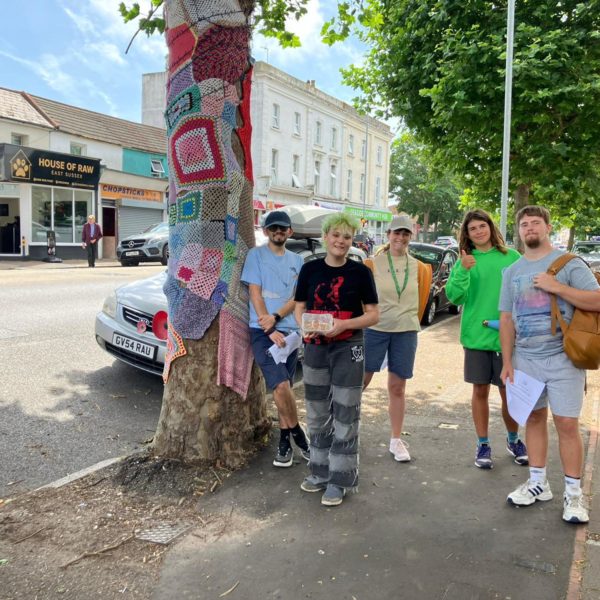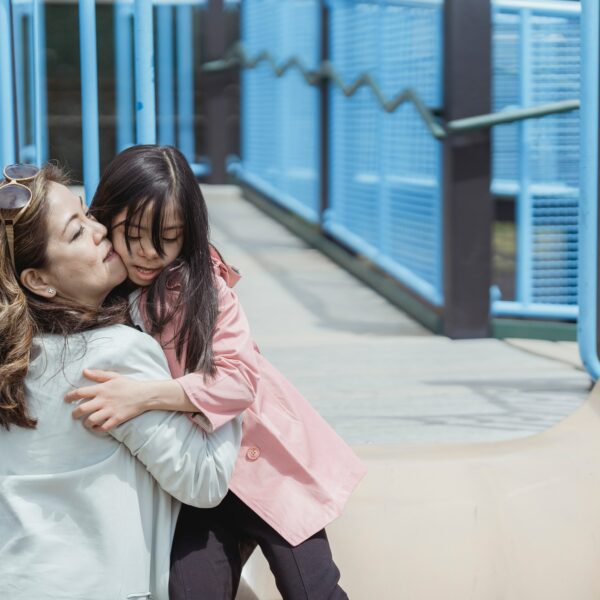Social care for children with SEND
Social care for disabled children in Sussex including eligibility, getting a social care assessment, types of care and paying for care.
What is social care?
Every local authority provides or funds services that offer practical support to people who need help with daily life. These are called social care.
Social care services can include information and advice, personal care for your child at home, short breaks such as after school and holiday clubs, overnight stays, home adaptations or equipment.
In many instances, the kinds of social care support you can get will be available to all families, possibly for a fee. If you need more targeted, specialist support such as respite, you will need to have a social care assessment of need – more about this below.
For more information about the kinds of help available for families of children with SEND in your area, visit:
Who gets social care?
Every local authority has its own criteria for allocating social care support to children and their families. Some children with long term, highly complex, health care needs may qualify for social care arranged and funded by the NHS instead of, or as well as, social care. This has a different route for assessment.
In Brighton & Hove, children and young people under 18 are eligible for specialist support like short breaks if they have a severe learning and/or physical disability; or have moderate learning difficulties, where it is assessed that their needs in terms of mental health issues/behaviour that challenges others can be met only through the input of specialist services. At 18, some young people will move on to adult services if appropriate, via the council’s Transitions team. This happens when they have an ongoing need and meet the criteria for help from adult services.
For under 18s, contact Front Door for Families for a social care assessment. Send an email to [email protected] or call 01273 290 400.
For adult social care services in Brighton & Hove, visit Brighton & Hove’s online adult social care hub. Read more Amaze advice about moving to adult social care.
The East Sussex Disabled Children’s Service provides social care support to severely disabled children with complex health needs up to 16 years old, and their families. Their social workers will do a family assessment if a child has a severe physical or learning disability; and they are on level 4 of the Continuum of Need, and other services are not appropriate or have not been effective. The East Sussex Transitions team supports the needs of young people and their families from 16 to 25, helping them to move from children’s to adult’s services such as social care.
Contact: East Sussex Children’s Disability Social Care and Respite, Tel: 01323 464222
Read more about the transition to adult social care.
If your child doesn’t meet the eligibility criteria for assessment via the children’s disability team for your area, you will need to contact your local council’s main ‘front door’ service for social care support.
In Brighton & Hove, this is Front Door for Families; in East Sussex, this is called the Single Point of Advice. You will need to explain your family situation and why you think you need urgent support. They may then refer you to a social worker for further assessment
How to ask for social care
Social workers prioritise help for families where children are ‘in need’ (this includes eligible disabled children), ‘at risk’ or need protection. So, if you are regularly struggling to cope with daily life because of your child or young person’s additional needs, you need to ask for help sooner rather than later and tell them how difficult things are.
The local authority has a duty to assess your child if they may be ‘in need’ and being disabled is one of the legally defined reasons that a child can be ‘in need’. Even if your child’s additional needs do not mean they are seen as ‘disabled’, they may still be entitled to an assessment if their health or development will be impaired without extra services.
If your child has an Education, Health and Care Plan (EHCP), their social care needs will be considered as part of the assessment process but usually only if the child has had some input from social care before. You should discuss any social care concerns at your child’s annual review, but this is not a social care assessment – you will have to ask for this separately or get the professional involved in your EHCP to ask for you.
There are single points of referral for all social care services in both Brighton & Hove and East Sussex, In Brighton & Hove, this is called Front Door for Families. In East Sussex, it is called Single Point of Advice (SPoA). If they think your child meets the criteria for the childrens disability social work service, they will pass the referral on to this team.
You can ask any professional who already works with you and your child – a health visitor, teacher, SENCO, GP – to contact the referral point with concerns about your son or daughter’s safety or wellbeing, or they may recommend doing so. You can also contact them directly yourself.
Following this initial referral, you (and the professionals that work with you) may be contacted to gather further information. Then, depending on your situation and your local authority’s criteria for giving help, you may then be referred for a more detailed assessment of your child and your family’s needs via a worker from a mainstream early help or social work team or disabled children’s services.
Social care needs assessments
For more targeted types of support such as overnight respite care, a social worker from your local disabled children’s services’ team will carry out an assessment of your child’s and your family’s needs, usually by visiting you at home.
This needs assessment is taken to a panel and all assessed requests for social care support for disabled children are considered, but this does not guarantee that you will get social care services.
If they do decide some support is required, they will settle on an amount of support they think is needed to meet your child’s particular needs and outcomes. It may be expressed in terms of an amount of money. From here, the planned support can be arranged in a number of ways including direct payments where you organise the social care needed yourself. They must set this out in a care plan which should be a realistic plan of action. Read more about this in Short breaks and direct payments.
Carers needs assessments
As a parent carer of a disabled child, you are also entitled to a separate ‘carer’s needs assessment’ if you request one. This focuses on your needs around work, education, having a social life and wellbeing.
You may need to mention having a separate carers’ assessment as, although the main needs assessment should focus on the needs of your child AND your family, including your needs as carer, families tell us that sometimes this doesn’t happen, or doesn’t get recorded properly.
OT assessments
If your child needs equipment or adaptations to the home, an occupational therapist will carry out their own specialist assessment. Read more about home adaptations.
Paying for social care
Some kinds of social care services are available to children with SEND without having a needs assessment, such as play schemes and activities. You may have to contribute to the cost of these services, but you won’t be charged if you are on Income Support or receiving working tax or child tax credit.
If your child has been assessed as needing a social care service by children’s disability social workers, the help they get will be free. Some services may be provided directly by the local authority but, most often, they will give you a sum of money as a Direct Payment so that you can arrange social care services yourself.
Read more about this in Short breaks and direct payments.
If your child’s disability involves ongoing medical treatment and they are assessed as having significant health needs, then there is a health funding panel which decides whether continuing healthcare funding will be provided to meet your child’s needs. As this counts as NHS care, it is free. All requests for this funding have to come with a health assessment. In practice your child’s needs have to be significant to be eligible for this funding.





